James Scott氏を招いたイベントなど
勉強会 ”The Art of not Being Governed: An Anarchist History of Upland Southeast Asia New Haven”を読む
2011年1月12日 京都大学 東南アジア研究所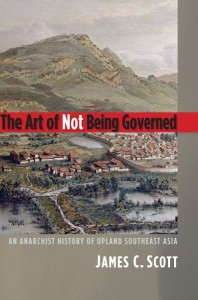 1月18~19日の国際セミナーに向けて、James Scott氏の著作を読み、批評する会合をもちました。この著作は、東南アジア大陸山間部をZomiaという概念で捉え、そこを、人々が政府や戦争、税金、疫病、災害などから逃れる場所と規定し、山地-平地関係への新しい視点を提供したものです。東南アジア島嶼部の流域社会を対象としている本プロジェクトとしては、大陸部と島嶼部との政治的・社会的・生態的状況の異同や、ボルネオの河川流域社会へのZomia概念の適用可能性などについて、議論を深めました。
1月18~19日の国際セミナーに向けて、James Scott氏の著作を読み、批評する会合をもちました。この著作は、東南アジア大陸山間部をZomiaという概念で捉え、そこを、人々が政府や戦争、税金、疫病、災害などから逃れる場所と規定し、山地-平地関係への新しい視点を提供したものです。東南アジア島嶼部の流域社会を対象としている本プロジェクトとしては、大陸部と島嶼部との政治的・社会的・生態的状況の異同や、ボルネオの河川流域社会へのZomia概念の適用可能性などについて、議論を深めました。
Project Launch Workshop:James Scott氏を招いて
2011年1月14日 京都大学 東南アジア研究所 世界的に著名な研究者であるJames Scott氏(Yale University)を、本プロジェクトのアドバイザーとして招き、プロジェクトの趣旨説明を行ったうえで、東南アジアの熱帯域バイオマス社会に関わるレクチャーおよびコメントをいただきました。 Scott氏は、東南アジア各地の社会に広く通じていると同時に、近年は河川流域研究にも着手しており、その意味でも、本プロジェクトの主旨と関心を共有することができました。 今回のワークショップでは、文理融合の調査研究のあり方についても議論を交わし、今後の研究を進める上で非常に有益なアドバイスを受けることができました。 (報告: 祖田亮次)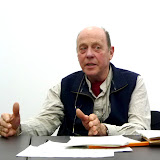
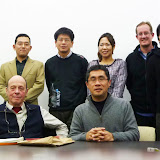
International Seminar: “Radically Envisioning a Different Southeast Asia: From a Non-State Perspective”
2011年1月18-19日 京都大学 東南アジア研究所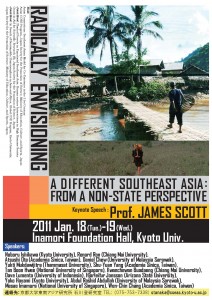 On the January 18-19 2010, our Kiban (S) Project co-sponsored an international seminar entitled “Radically Envisioning a Different Southeast Asia: From a Non-State Perspective”. We welcomed Professor James Scott form Yale University and other renowned Southeast Asianists to the Center for Southeast Asian Studies, Kyoto University to participate in two-day seminar.
The central question of this seminar was to ask to what extent can Southeast Asia be re-conceptualized, researched, and rewritten, if we considered non-state-centered perspectives and as such all participants joined in a discussion on these perspectives in the region and engaged in James Scott’s most recent work The Art of Not Being Governed (2010). A cursory glance at ethnographies concerning social formations in the region highlights how the nation-state-centered perspective has long generated a discussion on center-periphery dichotomies.
On the January 18-19 2010, our Kiban (S) Project co-sponsored an international seminar entitled “Radically Envisioning a Different Southeast Asia: From a Non-State Perspective”. We welcomed Professor James Scott form Yale University and other renowned Southeast Asianists to the Center for Southeast Asian Studies, Kyoto University to participate in two-day seminar.
The central question of this seminar was to ask to what extent can Southeast Asia be re-conceptualized, researched, and rewritten, if we considered non-state-centered perspectives and as such all participants joined in a discussion on these perspectives in the region and engaged in James Scott’s most recent work The Art of Not Being Governed (2010). A cursory glance at ethnographies concerning social formations in the region highlights how the nation-state-centered perspective has long generated a discussion on center-periphery dichotomies.
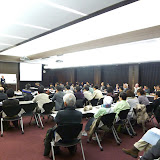 The discussion of the seminar was closely related to Kiban (S) project on riverine society where rivers function as liaison between state space (downriver) and non-state space (upriver). The members of our Kiban (S) project also participated in the seminar and joined in the deliberative discussion.
(報告: 石川登)
The discussion of the seminar was closely related to Kiban (S) project on riverine society where rivers function as liaison between state space (downriver) and non-state space (upriver). The members of our Kiban (S) project also participated in the seminar and joined in the deliberative discussion.
(報告: 石川登)


